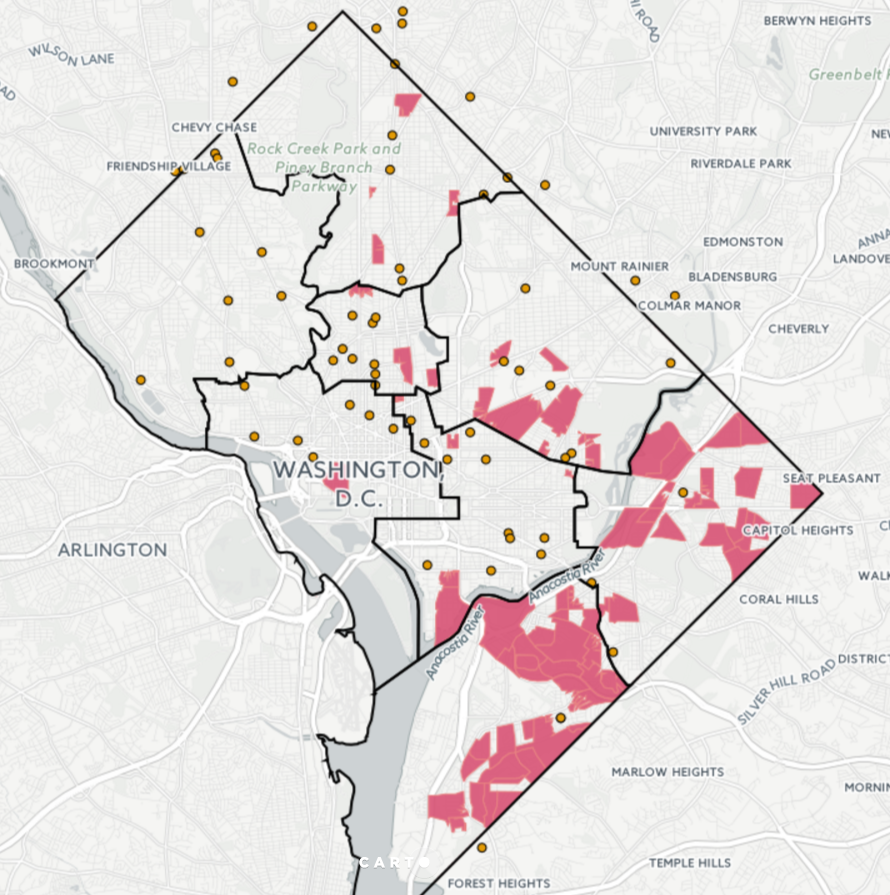On February 4, 2021, the D.C. Policy Center’s article, Food access in D.C is deeply connected to poverty and transportation, was cited by the Washington Business Journal:
A walk down Martin Luther King Jr. Avenue SE from Good Hope Road toward Morris Road reveals cranes and a string of rising projects, adding to what has long been the area’s quirkiest landmark, an oversized chair. Callender and Hallums’ project — part of a major development dubbed Bridge District that’s promising more than 700 homes, restaurant space and a grocery retailer to its west — is but one of the numerous projects on the books.
But even amid those plans, not nearly enough has changed. The area median income in Anacostia’s northwest portion is $35,750, sliding down to $17,159 in its eastern sections. It’s still designated a food desert, according to the D.C. Policy Center. More than half of area residents have no access to a car. Covid-19 and its disproportionate onslaught on communities of color just made things worse.
